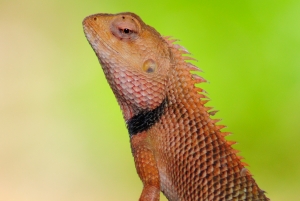 Although you might be tempted to make a spur-of-the-moment purchase on an adorable baby lizard or even a frog or snake while browsing your pet store, these exotic animals are more complex than you probably realize and, as a result, require quite a bit of commitment on your part in order to keep them healthy. So before making that purchase, consider the following important factors in order to ensure that you’ll be able to handle owning and caring for any kind of reptile or amphibian.
Although you might be tempted to make a spur-of-the-moment purchase on an adorable baby lizard or even a frog or snake while browsing your pet store, these exotic animals are more complex than you probably realize and, as a result, require quite a bit of commitment on your part in order to keep them healthy. So before making that purchase, consider the following important factors in order to ensure that you’ll be able to handle owning and caring for any kind of reptile or amphibian.
Feeding Requirements
One of the first things you need to think about before purchasing or adopting any pet, whether it’s a dog or cat, reptile, or bird, is whether or not you can afford to feed it the very best nutrition that will maintain its health and wellness. And when it comes to reptiles, different species have different needs, so research is definitely necessary prior to making a purchase.
According to Doctors Foster and Smith, just about every reptile or amphibian will need a good amount of fresh fruits and vegetables, and when it comes to reptiles with delicate bodies, it’s always best to feed organic produce. Many species, however, also require some form of live food, such as crickets, worms, or even mice. You may be required to raise these live animals in a separate enclosure, meaning you’ll need to care for more than just your reptilian friend. And if you don’t feel comfortable with the idea of having live bugs in your home, or with the idea of feeding live mice or other rodents to a growing snake, it’s best to steer clear of these species and opt for one that will thrive on a vegetarian diet, such as the Uromastyx.
Habitat, Lighting, and Heating
The next thing you need to consider is how large your reptile’s enclosure will need to be. You may even need to purchase multiple enclosures throughout the animal’s lifetime in order to accommodate its size as it grows. You’ll need to look into enclosures that are escape-proof yet easy to clean and maintain, and the right enclosure that will ensure the health and safety of your pet can be quite expensive.
Different reptiles also require different temperature settings within their enclosures, so you’ll need to purchase special equipment that will keep the cage set at the optimal temperature and humidity level.
Lighting is also key, not only for purposes of mimicking daylight, but also because reptiles are cold-blooded and use the warmth from heat lamps to regulate their body temperature. And in addition to providing a reliable heat source, your enclosure will need to be large enough to provide an area for the animal to retreat to in order to cool down too. Some species also require night lamps for maintaining warmth at night while promoting proper sleep patterns.
Handling Requirements
While some reptiles don’t mind being handled, a lot of them don’t like it at all. This may deter you if you’re looking for a pet you can hold in your hands. But, no matter what, it’s important to note that all reptiles carry Salmonella, so hygiene is key when it comes to handling the animal and anything it comes into contact with.





